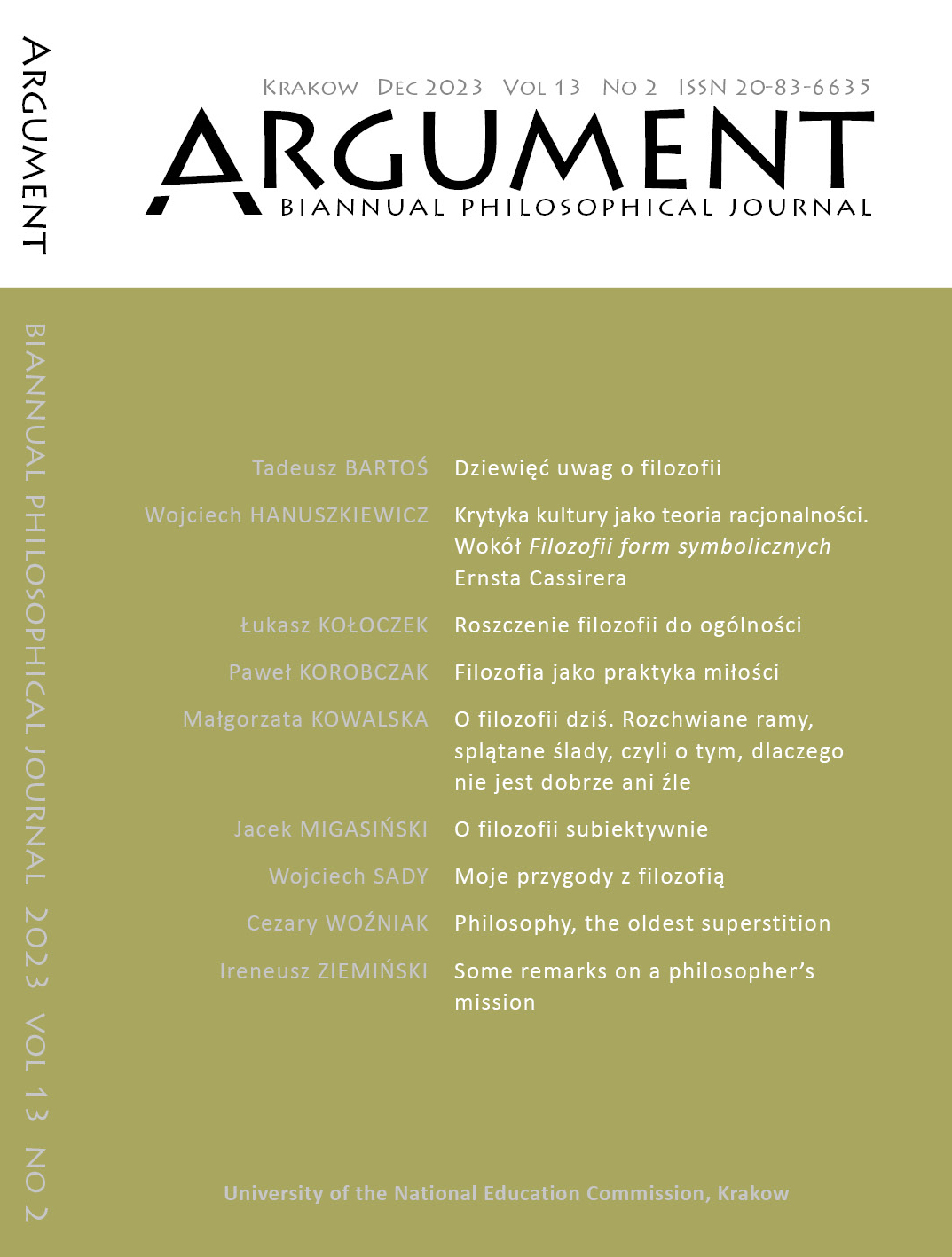Dziewięć uwag o filozofii
Nine remarks on philosophy:
Author(s): Tadeusz BartośSubject(s): Metaphysics, Philosophy of Mind
Published by: Wydawnictwo Uniwersytetu Komisji Edukacji Narodowej w Krakowie
Keywords: utility; habits of thought; de-historicising; nothingness; existence; thought giving birth to itself; thinking finitude;
Summary/Abstract: The question as to what is philosophy invites us to look from a number of sometimes opposing perspectives. 1) The question of what philosophy is should find the complement of what it is for you, and what your philosophy is. A reliable answer may be unattainable for many. 2) An assessment of who a great philosopher is could only be made by a philosopher equal to him. There is doubt about the list of great philosophers found in philosophy textbooks. A practical solution: those who have influenced for centuries, to whom all eras refer, are included among the great philosophers. 3) Philosophy is the art of thinking. It cannot be taught in school, which is designed to provide practical skills. School is not the place where thought is born. For thinking can be born in refraining from action, in silence. 4) The elitism of philosophy is not only an opinion about Martin Heidegger’s thought, among other accusations formulated by Jürgen Habermas. Similarly, Plato in his school wanted to form an elite of those who see and understand more. 5) The object of philosophy is the totality of what is, talking about everything. This raises methodological problems. All the more so because philosophical thought wants to transcend these limits, wants to reach beyond all that is given. To enter virgin, uncharted territory. 6) The sin of philosophers, as Friedrich Nietzsche wrote, is the cult of eternalisation. This cult mummifies. Glorification itself is such a killing. In philosophical thinking, the absolutisation of values must be avoided. For it takes us beyond life, beyond what is: it is the deprivation of life. 7) Life in its vital element is slipping away. Its affirmation means saying goodbye to Parmenides, to “take pleasure in uncertainty rather than certainty” (Nietzsche). Philosophy conceives itself as a lofty and serious thing. It has no room for humour, for laughter, as Nietzsche demanded. 8) Since everything has its end, philosophy too experiences its end. The memory of its great history remains, but it only confirms the irreversibility of the passing of the old worlds. Even the best reading of Plato’s dialogues will not bring back that lost world. 9) The task of philosophy today is to rethink the nature of finitude. It has been thought of as a negation of the infinite, as a relative concept without its own autonomous content. Discovering another way of thinking, looking, anticipating another way of understanding finitude, is the real challenge.
Journal: ARGUMENT: Biannual Philosophical Journal
- Issue Year: XIII/2023
- Issue No: 2
- Page Range: 235-251
- Page Count: 17
- Language: Polish

